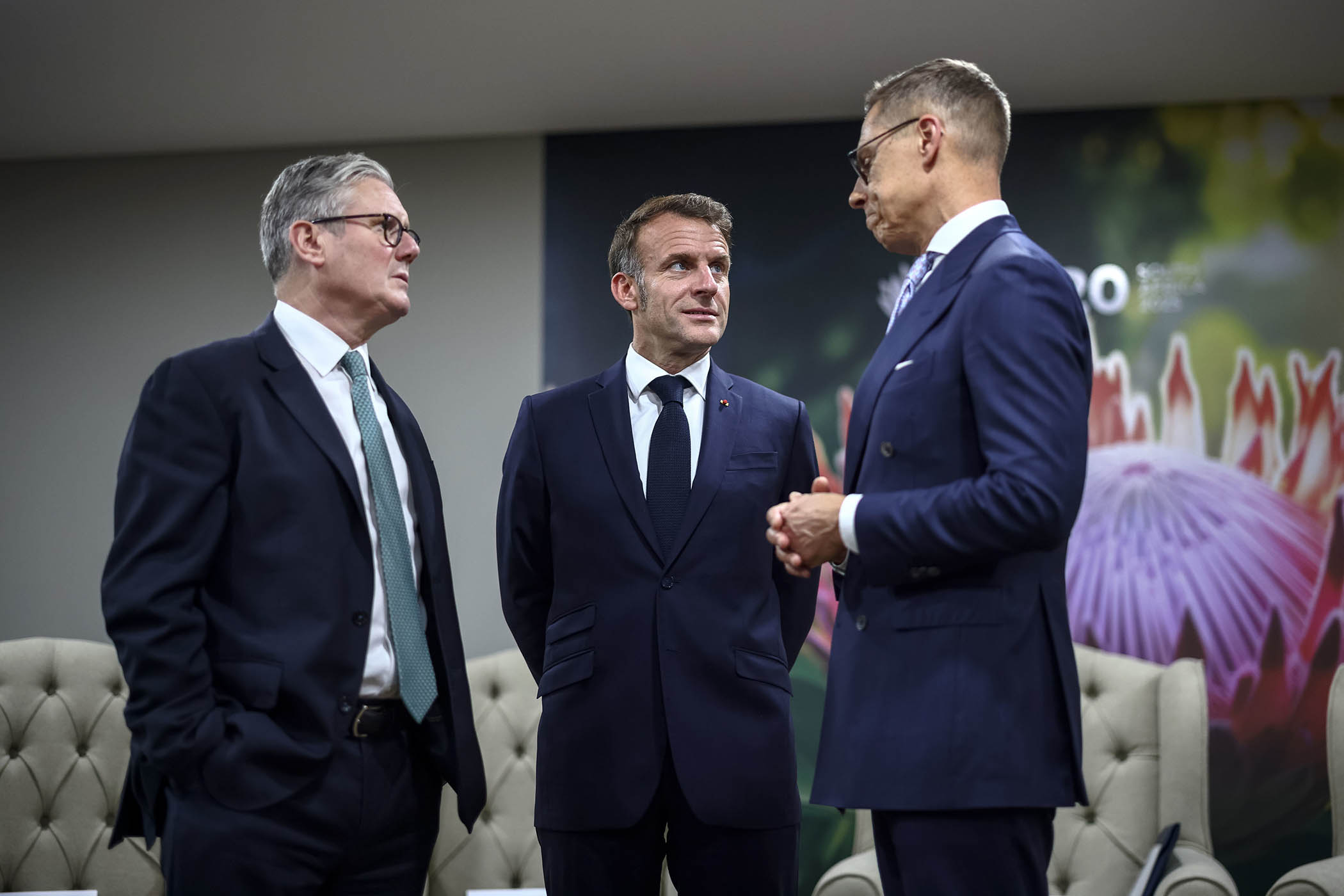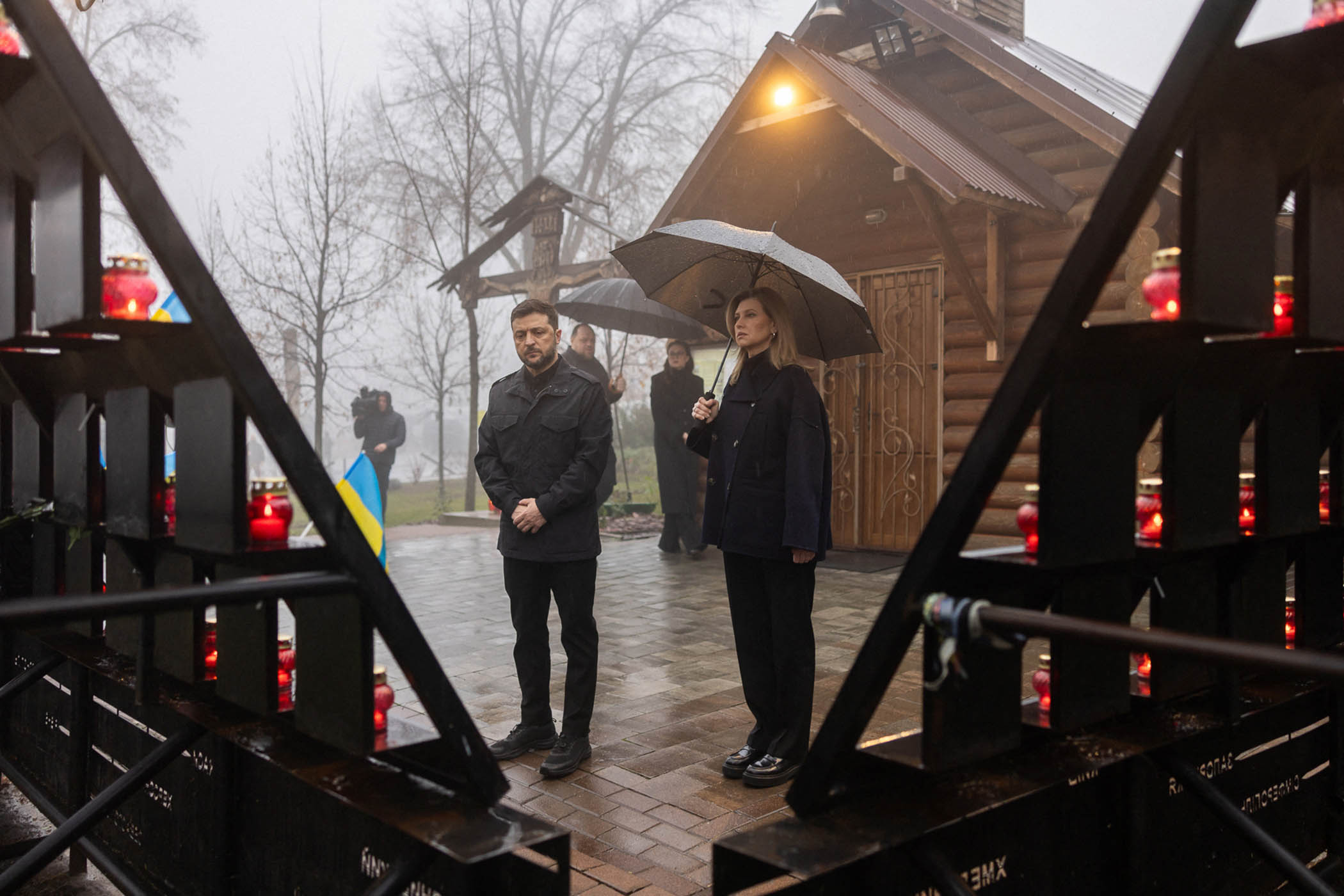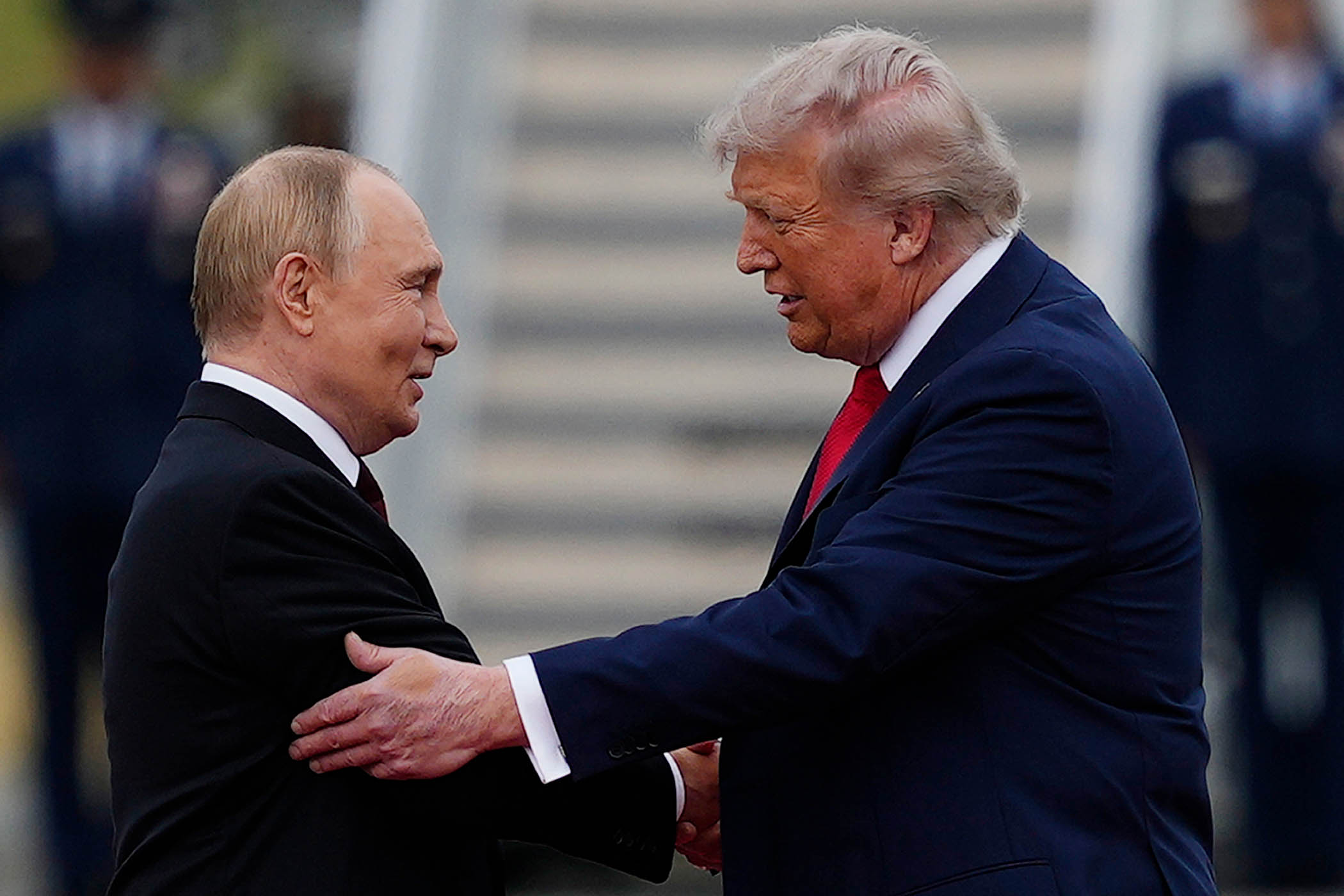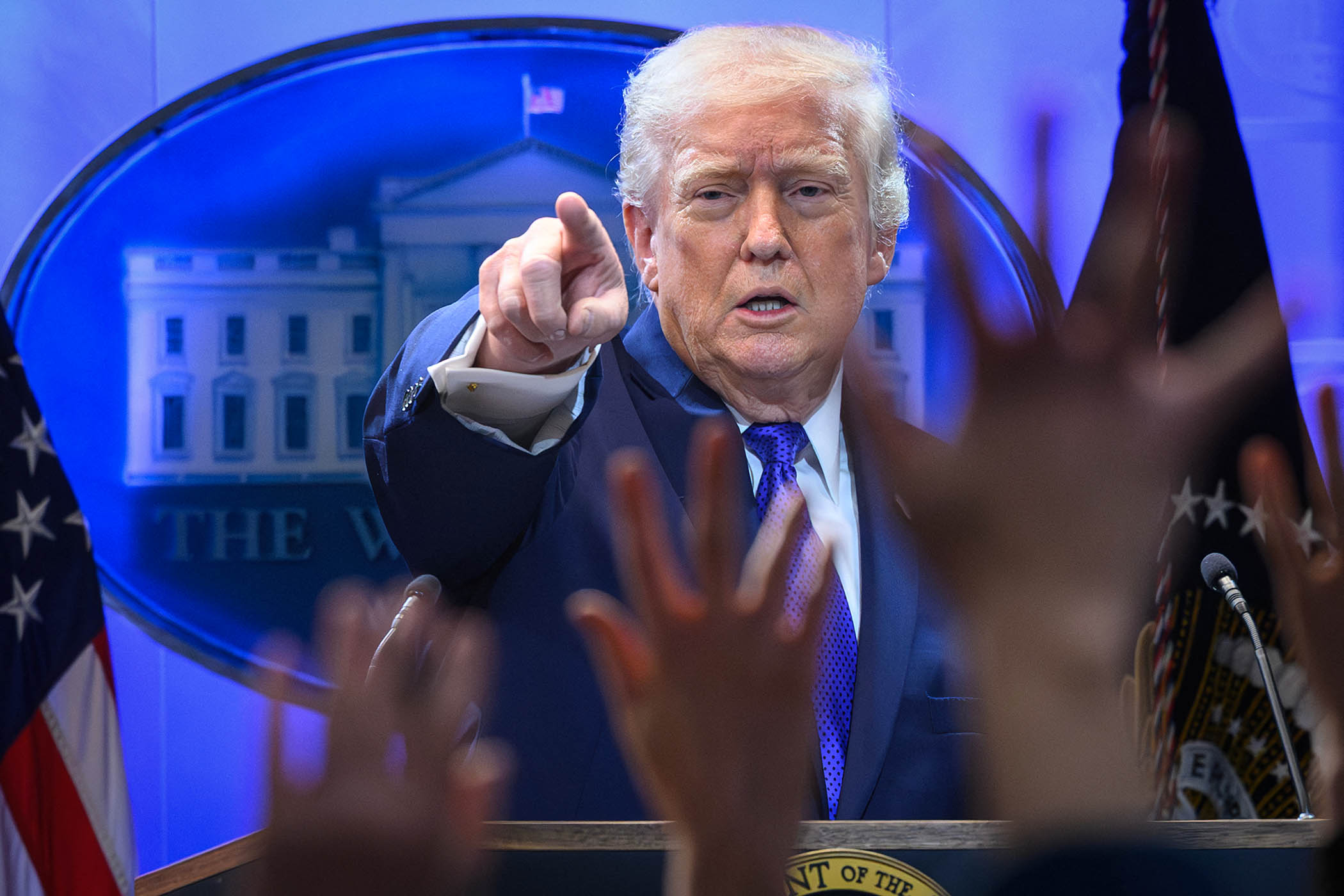European leaders were scrambling this weekend to prevent US President Donald Trump from forcing Ukraine to sign a peace deal on terms widely viewed as favourable to Russia.
In a sign of a fresh rift between the Trump administration and Kyiv’s European allies, prime minister Keir Starmer, French president Emmanuel Macron and German chancellor Friedrich Merz voiced concern over the plan, saying it needed more work.Starmer said he would talk to Trump “in the coming days”.
Trump has given Ukraine just a week to sign the deal, presenting President Volodymyr Zelensky with one of his hardest decisions since Russia invaded. Ukrainian negotiators are due to meet US officials in Switzerland for talks that will determine the country’s future – and that of the Western alliance. The widely leaked 28-point peace plan, put together by the US special envoy Steve Witkoff and his Russian counterpart, Kirill Dmitriev, reflects many of the uncompromising demands made by Russia throughout the war that Kyiv has consistently rejected: ceding eastern areas it now controls, significantly cutting its army size and pledging not to join Nato.
It has been backed by Vladimir Putin, who called it a “modernised” version of the one discussed at the Alaska summit with Trump in August.
The US has cautioned that the lopsided proposal is still “in flux”, but has also threatened to withdraw intelligence sharing and arms deliveries if Zelensky does not accept the deal by Thursday. “At some point, he’s going to have to accept something he hasn’t accepted,” Trump told reporters.
The plan was presented to Zelensky at a moment when he has been weakened by a corruption scandal involving members of his own circle – the reporting of which some of his allies believe is not coincidental.
Kyiv’s biggest European allies lined up behind Ukraine to push back against elements of the plan at a G20 summit in South Africa that neither Trump nor Putin are attending. Meeting with Starmer and Merz on the sidelines of the summit, Macron said: “There can be no peace in Ukraine without Ukrainians, without respect for their sovereignty.”
Experts expect Ukraine will come back with its own, more palatable, version of the plan. Kyiv has said that it is ready for some concessions, such as freezing the conflict along the current frontline. US and Ukrainian officials are expected to meet for talks in Switzerland in the coming days.
Speaking outside the presidential palace on Friday, Zelensky called this “one of the most difficult moments in our history”. He said his country had an impossible choice – retain national dignity or risk losing a key partner in the US, which has threatened to withdraw intelligence sharing if Ukraine does not agree to the deal.
Dmitriev, who has played a central role in the plan, claimed that it is designed to “save Ukraine from losing even more land and lives”.
Newsletters
Choose the newsletters you want to receive
View more
For information about how The Observer protects your data, read our Privacy Policy

Keir Starmer speaks to French President Emmanuel Macron and Finnish President Alexander Stubb ahead of the G20 summit in Johannesburg
Volodymyr Omelyan, a former minister for infrastructure and a military veteran who was wounded in action last year near Kupiansk, called the plan “miserable”. “It looks like something made by people wanting to do a business deal. It will not work,” he said, speaking to The Observer.
Orysia Lutsevych, head of the Ukraine forum at Chatham House, said: “It’s one of those moments where Ukraine feels pressured to accept conditions that are basically approximate capitulation. What is very painful for Ukrainians is to see that coming from the US and presented as a US plan.”
She added: “After all the diplomacy efforts, together with the Europeans, to adjust Trump’s understanding of how this should end, there’s now a feeling that there’s a much stronger alliance between Moscow and Washington around the state of the war.”
As well as giving Russia de facto recognition over Crimea, Luhansk and Donetsk, the current proposal would reportedly freeze the frontline in Kherson and Zaporizhzhia. It would also see Ukraine slash its armed forces, abandon long-range weaponry that could hit Russia and agree to reducing or halting US aid.
Zelensky said his country had an impossible choice – retain national dignity or risk losing a key partner in the US
Zelensky said his country had an impossible choice – retain national dignity or risk losing a key partner in the US
The plan offers “reliable security guarantees” from the US but they are vague, and short‑term preferential access to the European market. It does not bar EU membership, but does bar Ukraine from joining Nato. Any future deployment of western troops to Ukraine, as envisaged by Starmer and Macron’s “coalition of the willing”, would also be banned. It requires Ukraine to recognise Russian as an official state language, give amnesty for war crimes and grant formal status to the Russian Orthodox church.
The proposal also includes a reconstruction fund using frozen Russian assets, with European states contributing and some profits reportedly earmarked for the US. It was described by Omelyan as “opportunistic” and Lutsevych as “deeply unfair”.
“It’s fair to ask for concessions from both sides, but so far, there are no concessions from Russia,” said Lutsevych. US officials have said the plan is still being worked on and that a final agreement would require concessions from both sides.
The proposal has unsettled Ukraine at a moment of weakness. Moscow is on the verge of capturing the strategic hub Pokrovsk and claims to have entered Kupiansk, a city liberated in 2022, while Kostiantynivka has been partly encircled.
Zelensky is troubled by a £76m domestic corruption scandal in the energy sector, with top officials and close allies implicated, just as heavy Russian attacks are leaving Ukrainians in the dark and cold as the country heads into winter.
Experts believe that the scandal, while messy, is largely tolerated by western powers, who remain focused on the war rather than pursuing punitive action against Kyiv. Yet the timing of the peace proposal was striking.
“Putin smells blood in the water. He sees Zelensky is down and thinks now is the time to really pressure the Ukrainians to fold,” said Melinda Haring, senior fellow at the Atlantic Council’s Eurasia Center.
Trump, meanwhile, is keen to shift focus away from continued scrutiny over his relationship with convicted sex offender Jeffrey Epstein and is still “aiming for a Nobel peace prize”.
“Trump’s ultimate goal is just to end [the war] for the short term,” Haring said, adding that with the additional time pressure he is playing “hardball”. “Trump has no concern whether the deal favours Russia or whether it’s the kind of peace that is going to collapse in another two or three years.”
Photographs by AFP / Ukrainian Presidential Press Service, Leon Neal/PA Wire


